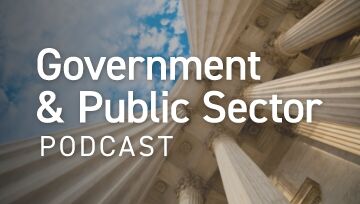The American Rescue Plan Act (ARPA) was enabled on March 11, 2021. Shortly after the act was signed into law, the State and Local Fiscal Recovery Fund (SLFRF) program was created to provide state and local governments with the rules and regulations related to the funding. In November 2023, the U.S. Treasury released the Obligation Interim Final Rule (IFR) to aid state and local governments in compliance with the ARPA obligations requirements.
Key Insights
- The November 2023 revision focuses on the flexibility of obligations and provides clarity to the original guidance.
- The obligation deadline of December 31, 2024, remains unchanged.
- The Obligation IFR, effective immediately, allows recipients to meet financial deadlines and incur costs by December 31, 2024.
Significant Updates
There are three major amendments or clarifications specified in the Obligation IFR:
Flexibility and Clarification: Definition of Obligation
The U.S. Treasury received inquiries regarding the definition of “obligation,” specifically in relation to obligations for administrative and legal personnel costs that are ongoing after the obligation’s date and pertinent to compliance with the funding requirement. Additional flexibility and clarity of this subject were necessary to support the recipient’s compliance with the obligation rules and regulations.
The Obligation IFR defines an obligation in two parts:
- Part I: An obligation continues to be defined based on the federal definition as stated in the 2022 Final Rule at 31 CFR 35 as “an order placed for property and services and entry into contracts, subawards, and similar transactions that require payment.”
- Part II: To provide more flexibility, the Obligation IFR lists administrative and legal costs the recipient may cover with SLFRF funds. Costs must be related to:
- Reporting and compliance requirements, including subrecipient monitoring
- Single Audit costs
- Record retention and internal control requirements
- Property standards
- Environmental compliance requirements
- Civil rights and nondiscrimination requirements
The Obligations IFR provides the following requirements for the above obligations. The recipient must:
- Determine the amount of SLFRF funds the recipient estimates to use to cover such expenditures.
- Provide reasonable justification for the estimate. This estimated amount must be reasonable and based on the principles in 2 CFR 200.404.
- Report the estimate to the U.S. Treasury by April 30, 2024, and provide an explanation of how the amount was determined. (If your state has an ARPA oversight agency, contact them for possible reporting templates.)
- Report the final amount expended for these costs at award closeout. Any part of the estimated amount not expended by the end of the performance period must be reimbursed to the U.S. Treasury.
The recipient’s current indirect cost rate or the de minimus rate may continue to be utilized through the end date of the funding period of performance.
Clarification: Obligation Deadline for Subrecipients
Subrecipients are not subject to the obligation deadline. Once a recipient enters into a subaward agreement with a subrecipient, the subaward amount is considered incurred by the recipient. In turn, this obligates the subrecipient to cover costs. However, the subrecipient must still comply with the deadline as stated in their subrecipient contract and cannot incur expenditures beyond the ARPA recipient expenditure deadline of December 31, 2026.
Flexibility and Clarification: Replacement of Contracts and Subawards
Based on ARPA regulations, it is unallowable for a recipient to change or amend a contract or subaward after the obligation deadline. However, as clarified in the Obligation IFR, there are circumstances where changes have been deemed allowable. A recipient may change or amend a contract or subaward if:
- There is default, termination of the business, or inability of the awardee to perform the duties under the contract or subaward. The recipient must terminate the contract or subaward.
- The recipient and contractor or subrecipient mutually agree to terminate the contract or subaward for convenience.
- The recipient terminates the contract or subaward for convenience for the following reasons:
- The award was awarded improperly.
- There is evidence to prove the award was improper.
- There is documentation to support the decision to deem the award improper.
- The original award was entered into by the recipient in good faith and the recipient followed standard procurement procedures.
The recipient must not amend a contract or subaward with the intention of avoiding the obligation deadline.
In the Obligation Quick Reference Guide, the U.S. Treasury states they will amend the Recipient Compliance and Reporting Guidance prior to the April 2024 reporting period. State and local governments should review the updated guidelines for additional reporting requirements.
Protect Funds from Clawbacks by Leveraging Indirect Costs
According to the SLFRF Final Rule, “Pursuant to the SLFRF Award Terms and Conditions, recipients are permitted to charge both direct and indirect costs to their SLFRF award as administrative costs. Direct costs are those that are identified specifically as costs of implementing the SLFRF program objectives, such as contract support, materials, and supplies for a project. Indirect costs are general overhead costs of an organization where a portion of such costs are allocable to the SLFRF award such as the cost of facilities or administrative functions like a director’s office.”
If organizations have not yet obligated all SLFRF funds and have not claimed indirect costs related to the direct costs incurred thus far, they may submit reimbursement claims on indirect costs against unobligated funds remaining. Those reimbursements may be deposited into the General Fund, unrestricted. This is a means to preserve unobligated SLFRF funds because, once unrestricted, they can be used toward established SLFRF programs, new programs, or reimbursement of already subsidized indirect costs.
Guiding State & Local Governments Forward with ARPA Compliance
Contact our Cherry Bekaert Indirect Cost Services team for more information on how you can reclaim these funds for your organization.



